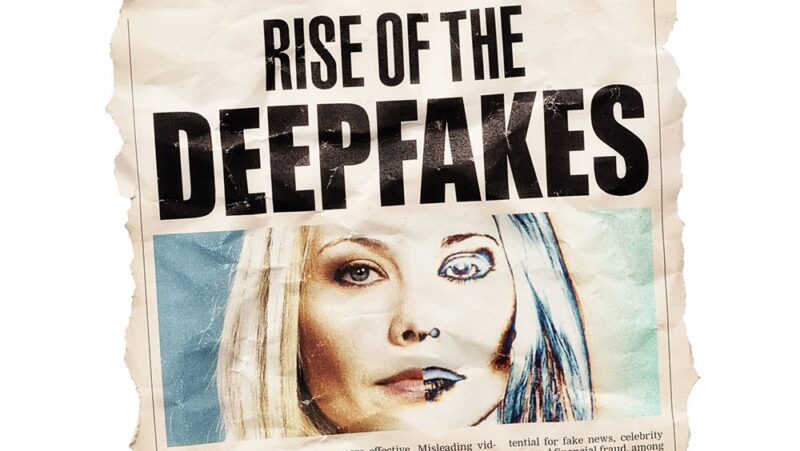The First Amendment
What is the First Amendment?
The First Amendment defines five fundamental freedoms – religion, speech, the press, assembly and petition – protected from government interference.
The First Amendment is part of the U.S. Constitution, the highest law of the country. It was added to the Constitution in 1791 along with nine additional amendments that make up the Bill of Rights.
What does the First Amendment say?
The exact text of the First Amendment is:
Congress shall make no law respecting an establishment of religion, or prohibiting the free exercise thereof; or abridging the freedom of speech, or of the press; or the right of the people peaceably to assemble, and to petition the Government for a redress of grievances.
45 words.
— Freedom Forum (@1stForAll) February 1, 2023
Five freedoms.
One amendment. pic.twitter.com/gdCXFomn2D
What does the First Amendment protect?
The First Amendment protects the freedoms of religion, speech, the press, assembly and petition from laws or government actions to control or take them away.
In other words, it protects the right to:
- Pray or not in accordance with our own beliefs.
- Speak our minds or refrain from speaking.
- Post and publish ideas, opinions and information.
- Gather together.
- Bring feedback to government representatives.
While the freedoms of the First Amendment are not unlimited, the government must meet the courts’ toughest tests to restrict how people use their freedoms. Government must use the narrowest means possible of limiting a freedom while aiming to achieve its most important responsibilities.
These freedoms can never be limited simply because the government disagrees with the belief, view or message being expressed through the exercise of religion, speech, press, assembly or petition.
Where does the First Amendment apply?
While the text of the First Amendment says, “Congress shall make no law …,” the courts have never interpreted this literally. Instead, it means government can only infringe on First Amendment freedoms when necessary to avoid some kind of harm or danger from the exercise of those freedoms.
The First Amendment applies to government at all levels – local, county, state and federal – and of all types – elected officials, government agencies, public schools and services, legislatures, courts, etc. It means that none of these governmental bodies can enforce laws or take other actions that prevent people from using their rights or punish them for doing so.
The First Amendment restrains governments’ power – not that of parents or private employers, for example. So, while other federal and state laws may protect religious exercise and speech in private spaces like workplaces and businesses, the First Amendment itself does not constrain private organizations.
Who does the First Amendment protect?
Anyone in the United States receives First Amendment protection because the First Amendment simply says what the government may not do. In other words, the government may not infringe on First Amendment freedoms in a way that affects any person or organization.
How did the First Amendment come about?
People in several of the 13 states that were part of forming the United States and adopting the Constitution felt it was important not only to define the structure of the federal government and its powers, but also to define the rights of the people living under that government. In other words, there was a call to specifically write limits on the government into the Constitution as well.
On Sept. 25, 1789, Congress approved 12 such amendments and sent them to the states for approval. It took two more years after they were sent to the states for the 10 amendments we now know as the Bill of Rights, including the First Amendment, to be ratified on Dec. 15, 1791. That’s when the First Amendment officially became part of the Constitution.
Why is the First Amendment important?
Because it protects our freedoms of religion, speech, the press, assembly and petition, the First Amendment ensures that we can set our own values, express ourselves openly on whatever topic we want without fear of government control or punishment, and join with others to make our views known and spur change.
Because of the First Amendment, each of us can live our lives as we choose. We can go to a book club. Be an activist. Post a meme. Watch a movie. Think our own thoughts.
The First Amendment is also the key to ensuring that government is always of, by and for the people because it specifically keeps government out of the fundamental freedoms through which we participate in public life. The guarantee of these freedoms empowers us to participate in democracy and to have a say.
Explore our First Amendment article library
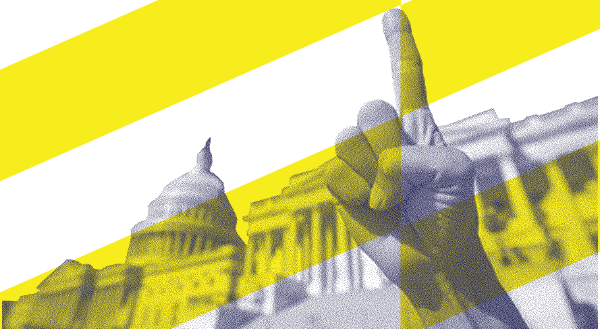
What is the First Amendment freedom of religion?
Freedom of religion under the First Amendment protects the ability to believe and live by one’s own religious tradition. This includes religious, unaffiliated and nonreligious people alike.
It is perhaps the most personal and most fundamental “first freedom,” protecting our innermost convictions from government interference.
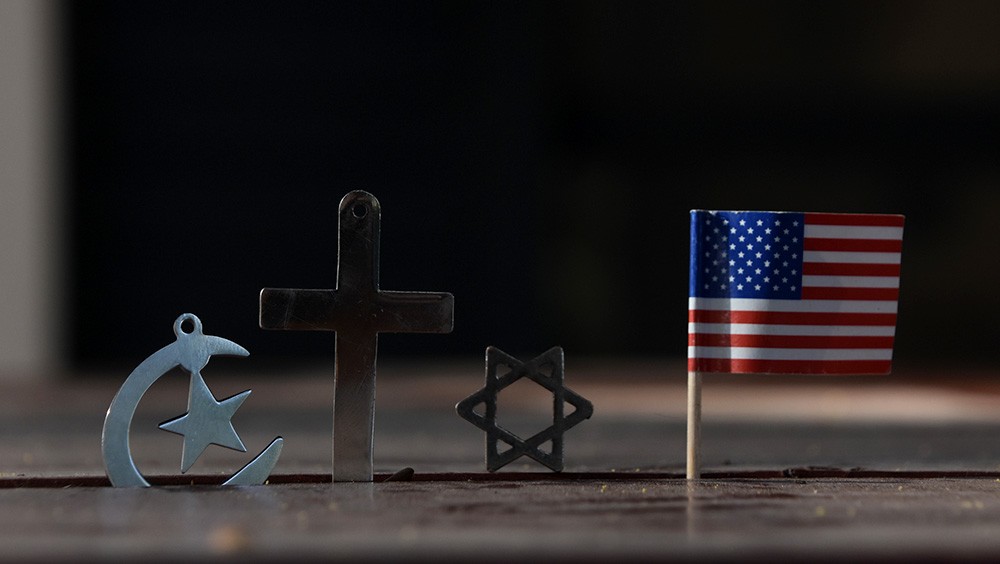
What does freedom of religion include?
The First Amendment includes two specific protections related to religious freedom. It says that government can't act regarding, “an establishment of religion, or prohibiting the free exercise thereof.”
These two parts are referred to as the establishment clause and the free exercise clause.
Separation of church and state: The establishment clause
The establishment clause means that government must be neutral toward religion. There can never be an official national religion. Government actions can't favor or discriminate against any particular religion, or religion over nonreligion. Government can't get involved in, direct or take sides among religions. This concept is sometimes called separation of church and state. This phrase does not appear in the First Amendment or the Constitution but was used by its framers.
This separation doesn’t mean people can never bring their beliefs into the public square. It does mean that the government can't treat people differently based on their beliefs.
This can be complex in practice.
When the role of religion in politics comes up, the phrase "separation of church and state" is often part of the conversation.
— Freedom Forum (@1stForAll) December 14, 2023
Some say it's a law that must be maintained. Others say it never appears in the Constitution and goes too far in taking religion out of public life. So… pic.twitter.com/lWh8Vl1nbG
Freedom to practice: The free exercise clause
In addition to preventing the government from dictating which religions anyone can or can't observe, religious freedom under the First Amendment protects how we each live out or practice our religions. Free exercise means that we can't be punished only for what we believe.
This protection also makes it difficult for the government to limit how we practice or act on our beliefs. Any such limits must be justified by a compelling government interest and must be applied equally to all religions, not target any one religion (or nonreligion).
Enacting this protection can also raise complex questions. For example, the Supreme Court says that businesses can’t be forced to speak contrary to their owners’ religious beliefs, but also that businesses can't discriminate regarding who they serve.
The two principles of religious freedom – establishment and exercise – can also come into tension with each other. For example, when a public high school football coach wanted to pray on the field after games, the school district worried that this government official’s action could entangle the government with religion. The coach argued his free exercise should be protected. The Supreme Court ruled the coach could pray, but only on his own and not through his role as a coach and government employee.
Who does religious freedom protect?
Freedom of religion protects everyone, including people of all faiths and none. But the courts don’t have a single, agreed-upon definition of religion. For much of U.S. history, courts have been most likely to protect religions familiar to people in the religious majority: belief in a deity, an organizational structure, a sacred text.
But people whose strong moral convictions did not include belief in a god, or whose religious tradition didn’t include some of the elements common to majority religions like Christianity, have also been protected under religious freedom.
Where does a personal belief shift from a moral conviction to a religious belief? When are these various types of beliefs protected as religious freedom? Courts continue to address these questions.
RELATED: How lesser-known religions protect religious freedom
When is freedom of religion protected?
Religious freedom under the First Amendment means that government at all levels is limited in efforts to establish or ban the exercise of religion. The First Amendment does not apply to disputes over religion between people or organizations that are not governmental bodies. But many states and the federal government have additional laws to protect people from religious discrimination and to protect religious exercise in places where the First Amendment does not apply, such as at work and at businesses.
Why is religious freedom important?
At its best, First Amendment religious freedom ensures we can think and act according to our own beliefs – and all live together in a society with others whose beliefs vary widely.
Religious freedom ensures that people of all faiths and none can shape their lives by their beliefs and be welcome in the public square.
What is the First Amendment freedom of speech?
As freedom of religion protects our innermost beliefs from government dictates, the First Amendment freedom of speech protects our views, interests and opinions as we voice them.
Freedom of speech is designed to particularly protect political views and opinions. And it protects individual and group expressions of identity and culture.
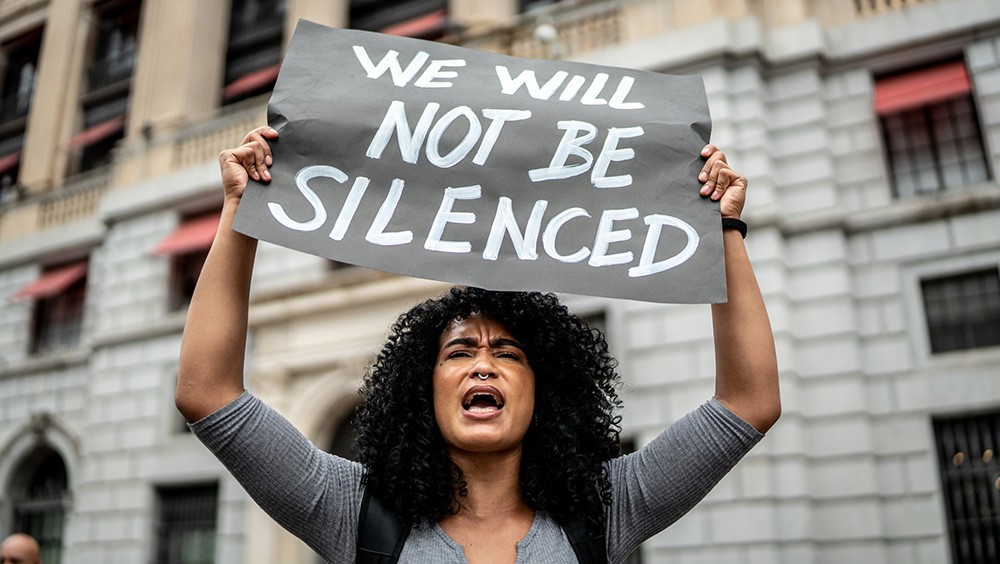
What does freedom of speech include?
Freedom of speech has been interpreted by the courts to mean freedom of expression broadly, protecting many ways we might make a statement or send a message.
This includes what we say, write or wear. It includes the art, books, movies, and even internet memes we might create, share or consume. It can include symbolic actions like kneeling, raising a fist or placing a hand over your heart.
Freedom of speech protects the expression of ideas or views we might disagree with, that are inflammatory and that are hateful.
It also protects the right to refrain from saying something we disagree with. For example, the government can't require anyone to recite the Pledge of Allegiance.
Freedom of speech doesn’t mean anyone can say anything they want, anywhere, anytime. It doesn’t protect some types of speech like true threats and defamation. But there are high standards to limiting speech, and it can never be limited because of the message or point of view.
RELATED: What speech is (and isn't) protected by the First Amendment?
Who does freedom of speech protect?
In the United States, everyone is entitled to freedom of speech, regardless of age, background or views.
In some cases, freedom of speech may be limited for some people. For example, public employees may be restricted in expressing their personal views while at work on behalf of the government. Public school students have free speech at school, but their expression may be limited if it’s disruptive or infringes on others’ rights.
When is freedom of speech protected?
Free speech is protected by the First Amendment in places under government purview, with the caveat that the government has more leeway to restrict speech based on the time, manner or place of such speech than the message or view expressed. For example, the government may be justified in preventing someone from shouting through a megaphone in the middle of the night on a public sidewalk outside a retirement home. But it can't enforce such a rule selectively based on what someone shouts.
Free speech is not protected by the First Amendment in private spaces because the First Amendment applies only to the government. In other words, the First Amendment does not restrict how private people or organizations – such as private employers and privately owned social media companies – react and respond to speech. Unless another law applies, employers can discipline their employees for what they wear or say at work or online.
When, where and to what extent speech is protected from government influence are continually tested as the courts examine the boundaries of free speech case by case.
Why is freedom of speech important?
Freedom of speech means the government does not get to decide what ideas we can share or consume, protecting individual liberty. Speakers and listeners, not the government, get to decide the value of speech, ensuring the government can't define truth. And it ensures that “we the people” control the government and not the other way around.
What is the First Amendment freedom of the press?
Freedom of the press is closely intertwined with freedom of speech because it protects the ways speech is amplified beyond ourselves and our immediate audience.
It protects the ability to gather and print, post or publish information, ideas and views without the government reviewing what you’re going to say, stopping you from publishing or censoring what you publish.
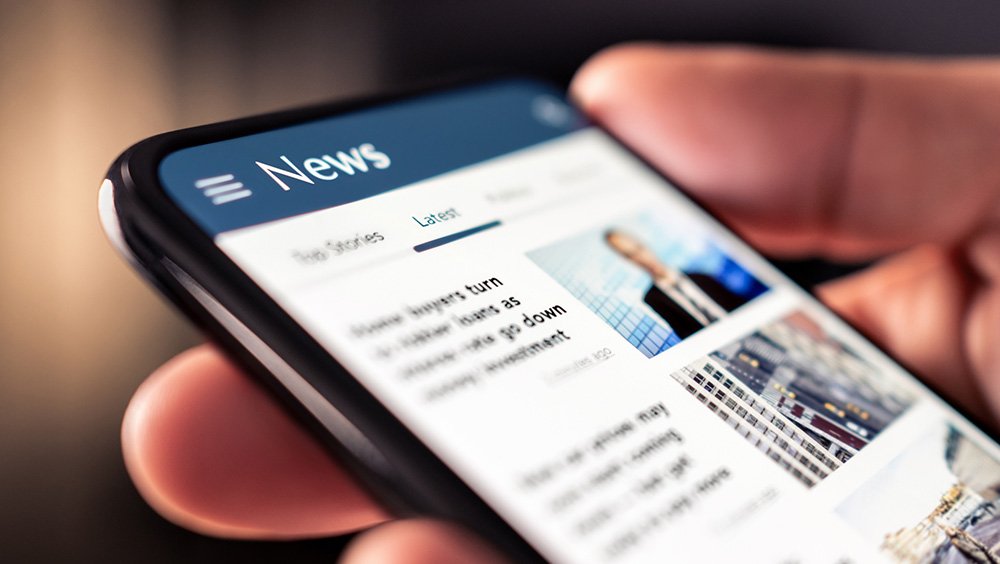
What does freedom of the press include?
Freedom of the press protects expressions distributed in all kinds of media formats. This includes op-ed columns and editorials, books, blogs, social media posts, email newsletters, newspapers, videos, TV news stories, cable shows and so much more.
In addition to protecting the publication of information and ideas, freedom of the press is often cited in protecting the ways news and information is gathered, such as efforts to keep government records and actions transparent.
Who does freedom of the press protect?
Press freedom is often viewed as most relevant to professional journalists. But this First Amendment right does not only protect news organizations and those who work at news outlets.
The government doesn’t define journalists. Press freedom protects everyone.
Press freedom protects your weekly newsletter to neighbors from censorship by the town council just as it protects a major newspaper from state mandates about what can or can't be published.
When is freedom of the press protected?
Press freedom is protected from government interference. The government can't access newsrooms or information people have gathered on their devices without strong cause. It can't prevent the creation or distribution of protected content.
But privately owned media companies and social media platforms can decide what to publish, allow, delete or choose not to publish. Platform owners like Elon Musk and Mark Zuckerburg are not government officials. So, they are not violating anyone’s First Amendment freedoms when their platforms’ terms of service inform users that their content may be removed. And your hometown newspaper can't be required to print your op-ed or be prevented from blocking comments. Such private companies are understood to have their own free speech and free press rights. They can regulate content on the platforms they own where the government can't.
Are social media companies allowed to censor you? 🤔🚫
— Freedom Forum (@1stForAll) November 20, 2023
Here’s everything to know about what you can (and can’t) say on Facebook, Instagram, X, TikTok and more.
➡️ https://t.co/AH5gfUp4HN pic.twitter.com/WygqJDEnVd
Why is freedom of the press important?
Freedom of the press under the First Amendment protects the ability to publish ideas, opinions and facts. This creates a forum for participating in the free and open debate central to democracy.
Because the government does not have the power to select which media to allow, we get to decide what news, information and entertainment to consume. That includes information the government might not like, agree with or wish to be known. This can help hold the government accountable when wrongdoing occurs.
At its best, the press connects us with our communities, each other and with information we rely on to participate in public life – protecting all our freedoms.
What is the First Amendment freedom of assembly?
The only First Amendment freedom we can’t exercise alone is the freedom “peaceably to assemble,” or the right to gather and organize with likeminded people.
This lesser-known First Amendment freedom is often referred to in conversation as protest, because it does protect the right to peaceful protest. But it also protects so much more.
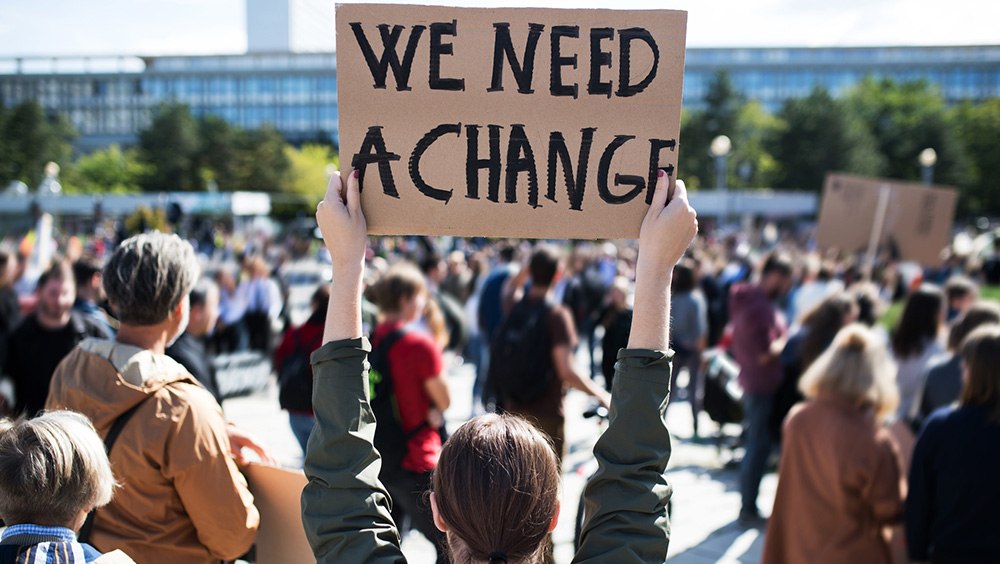
What does freedom of assembly include?
Freedom of assembly protects the ability to gather peacefully with others to organize, advocate, protest, amplify a message, raise awareness, support or oppose something, or even just for fun.
It protects public gatherings like marches and rallies. It also protects gathering privately behind the scenes. Though freedom of association isn’t specifically mentioned in the First Amendment, freedom of assembly has been interpreted by the courts to include this right to create groups and gather to plan and organize.
Who does freedom of assembly protect?
As all First Amendment freedoms do, freedom of assembly protects everyone’s right to gather peacefully, no matter the view or perspective of those organizing or protesting.
Freedom of assembly protects assemblies that express uncomfortable, inflammatory and hateful views, views held by a minority of people, and widely held views alike.
When is freedom of assembly protected?
Peaceful assemblies are always protected from government attempts to limit or shut them down based only on the views being expressed.
But all public places are not always open for protests. The government can create restrictions on the time, place and manner in which people assemble for considerations like safety and disruption – if it does so without regard to the ideology or message of the people gathering. For example, groups planning to protest on the National Mall in Washington, D.C., may need to apply for a permit so authorities can plan for such events. But permits can't be denied based on the views of the group that has applied.
The extent to which the government can limit the expression of assemblies, particularly protests, are often pushed and tested by protestors and government officials or agencies alike.
The First Amendment never protects violent or destructive actions at assemblies.
But if one person commits an act of violence at a protest, can the whole protest be shut down? Can organizers be held responsible? This level of accountability could severely impact the ability to organize, in effect curtailing the right to assemble – as it already has been in some states and examples.
For hundreds of years, the First Amendment freedom of assembly has been used to spark change. But not all protests are created equal, and the limits of the law have often been tested — and exceeded.
— Freedom Forum (@1stForAll) December 21, 2023
We explore 20 of the most famous protests in US history: https://t.co/nuXf8IkOmg pic.twitter.com/gHpOVRQZPc
Why is freedom of assembly important?
Public expressions of assembly like protests can be uncomfortable. But they are also an important social safety valve for when people believe something is wrong. Exercised alongside other First Amendment freedoms, assembling with others can galvanize change.
Assemblies have spurred social change from our nation’s founding to emancipation, suffrage and the Civil Rights Movement. Public marches and behind-the-scenes organizing have shaped the conversation and impacted policies around subjects of public concern such as abortion, environmental policy, racial equity and LGBTQ+ pride.
What is the First Amendment freedom of petition?
The right to “petition the Government for a redress of grievances” protects the right to ask the government for change or let the government know how we think it’s doing – including with complaints.
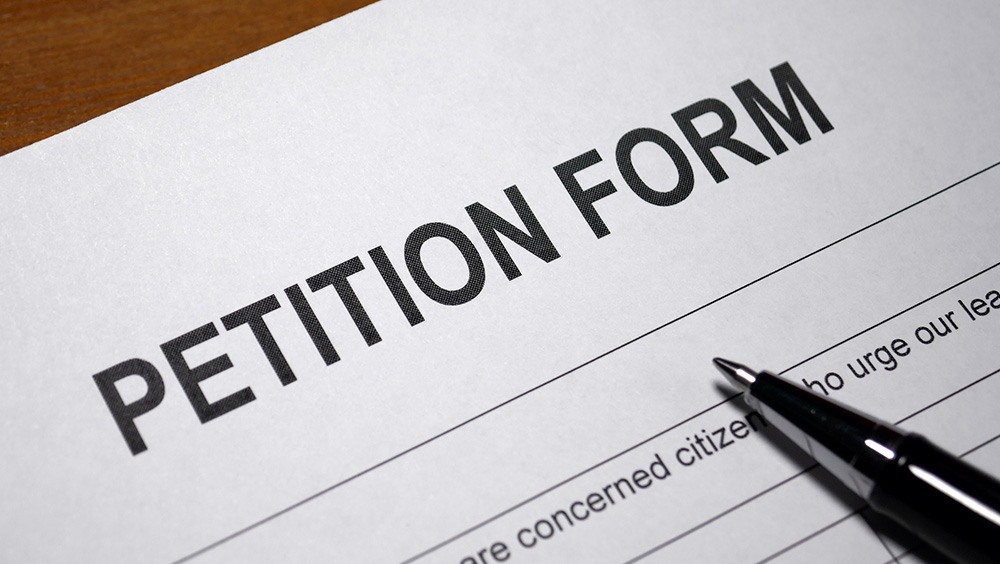
What does freedom of petition include?
Historically, a petition was a written request stating a problem and requesting help from someone in authority, like a king. Today, petitioning can be as simple as sending an email to your representative in Congress or the town council.
Ways to petition include literally signing a petition, as well as contacting a government official, speaking before a government body like a school board or legislature, and lobbying government representatives or agencies.
Voting is sometimes considered the ultimate expression of petition. But voting rights are regulated by their own laws.
We can petition the federal, state and local governments. We can also petition all branches of government: judicial, executive and legislative.
Who does freedom of petition protect?
Like all five First Amendment freedoms, the freedom to petition is protected for all people, regardless of their views.
While contacting an elected official might be most effective for someone who is a voting constituent of that official, people of any age can petition.
When is freedom of petition protected?
Freedom to petition means that we can complain to the government without fear of punishment – even if we are presenting a complaint about the government.
On the other hand, the government is not required to respond – or to enact our requests. After all, that would almost certainly be impossible, as many people petition with different ideas and conflicting requests.
And as with all First Amendment freedoms, there are some limits. Neither the president of your school board nor of the United States, for example, is required to answer your 2 a.m. phone call.
In today’s social media age, the level of access government officials must allow under the First Amendment is often tested.
Why is freedom of petition important?
Freedom to petition is the First Amendment freedom with the lowest awareness among Americans. But to the originators of the First Amendment, it was perhaps the most important.
The United States exists because of petition. King George III repeatedly ignored colonists’ petitions for policy changes to an extent that became so unacceptable that the colonies declared independence and formed a new nation.
We can believe, speak out, publish, and gather to protest all we want. And because the government must consider petitions, it is accountable to the will of the people.
Petition is a powerful tool that has prompted change from the birth of our nation to ending slavery, expanding suffrage and enshrining civil rights into law.
Put this knowledge of the First Amendment to use
So, what is the First Amendment? It’s a powerful tool to protect Americans’ rights to be themselves and express who they are, free of government intrusion.
Since 1791, though sometimes enacted imperfectly, the five freedoms of the First Amendment have empowered people.
People in the United States will always have differences of beliefs, political ideas and even what the First Amendment means. But when First Amendment freedoms are upheld and defended for everyone, everyone can participate in democracy.
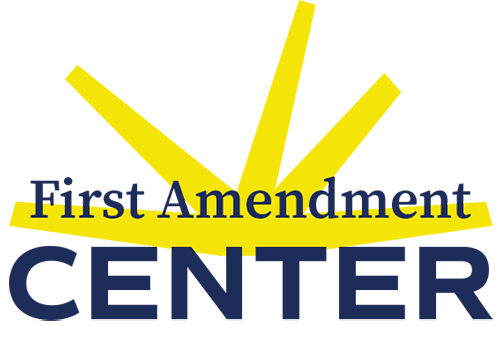
You can have faith in the First Amendment.
More articles
You might also be interested in


